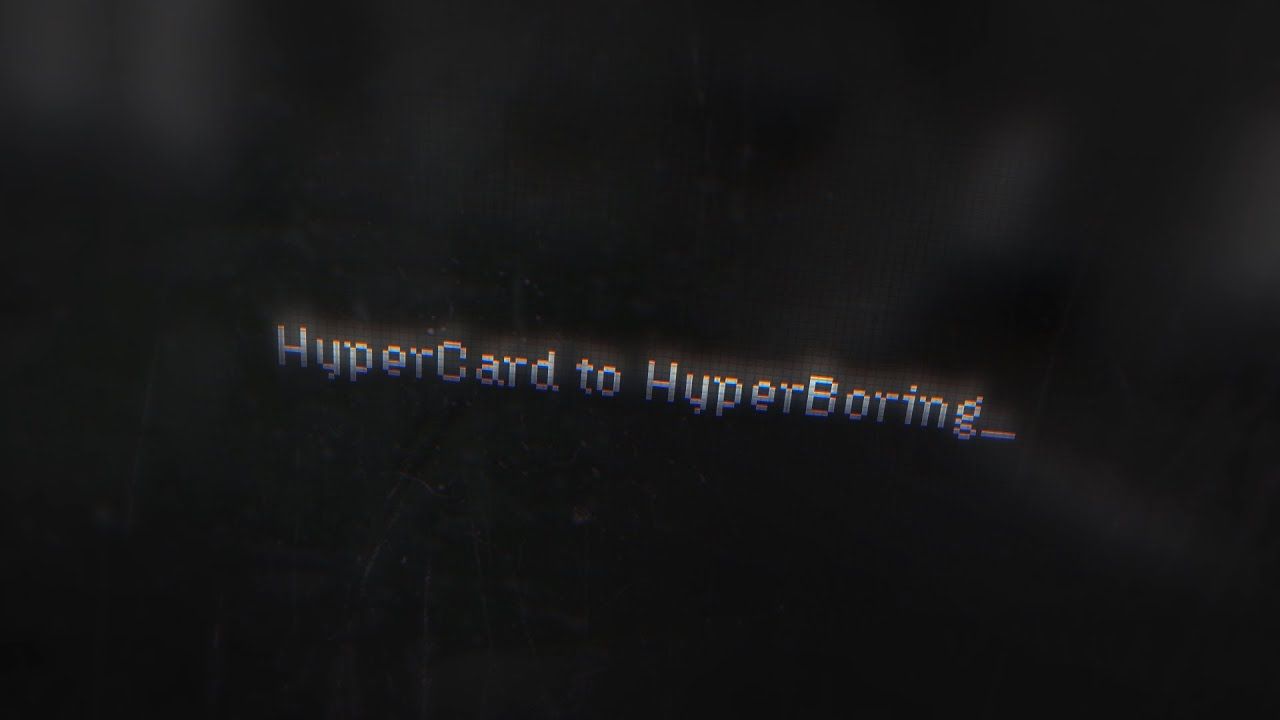HyperCard to HyperBoring

~ ~ ~
I was born in a period of time in which people don’t know to assign the label millennial or gen-z. A time in which I remember a life before the prevalence of smartphones, but in which personal computing and the internet were already a major part of day to day life. This position, now lovingly referred to by some as gen-zillennial, has had me reflecting on the changes I’ve seen with personal relationships to technology.
See, for a period of time I felt like exploring the internet was a great adventure of full of hidden gems and unique communities around every corner., a place where we played with applications just to see what could be done. But of course, over time, my generations were also the first to flock to major social media sites.
These days, the internet and software tools are ubiquitous and omnipresent, but my relationship to them feels more and more distant. I go to a social network to see an algorithmically-generated feed of what my friends are posting, so long as the thing they post fits neatly within the boxed criteria prescribed by the interface of the network. I use software tools all day long, but each one has a specific purpose, and never quite feels it has what I need to let my mind go and just dream.
I find myself filled with some kind of nostalgia for a time just before I was alive. A time where people made chaotic and deeply personal geocities websites, where they share tools and files custom made and hosted on personal servers, and above all, when people were still dreaming about the average person taking full advantage of the partnership with computers. A partnership that was painfully clear with HyperCard.
I don’t want my online interactions to be dictated by the rules and algorithms of a company profiting off of spying on my life. I don’t want to feel like I can’t do something until someone else makes a feature or tool that enables me to do something. Despite the exponential rise of a focus on STEM, the understanding of what it took to make our own technology moved farther and farther away from the average person and made us reliant on what someone else made. We went from a world of the possibilities HyperCard enabled to the HyperBoring one we’re feeding with our wallets and attention now. But maybe, one day, if enough people feel the same way, we’ll find a way to flip back in the opposite direction.
~ ~ ~